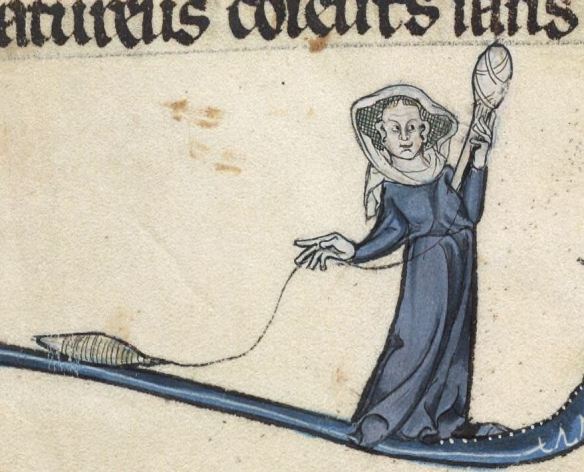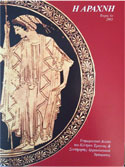ROKA, DISTAFF AND ST DISTAFF'S DAY
Roka, the distaff, is a, sometimes bifurcated, rod that carries the raw material, most commonly wool, flax or cotton for spinning. The ancient Greek term hēlakatē refers to the rod and the term ta hēlakata to the material on it. The picture of an old village woman spinning holding her distaff outside or while telling stories to her grandchildren at the fireplace is still familiar in Greece.
The term is a medieval loan from the italian term rocca. Indeed, since the early days of the Byzantine Empire, its relationships with Italy and especially with Ravenna and Venice were constant and both of the parties were affected on different levels, including the language.
Regarding the history of this italian term, there is no uniform view. However, it is certain that it derives from the old German, maybe from the Gothic rukka. The modern German term Rocken derives either from the older rocko< *rukkon [common root *ruk- with Rock, dress] or from late Roman *rotica, related to rotare, to rotate, and rota, wheel.
St Distaff’s day, celebrated since medieval times on January 7th, indicated that the time had come for the women to resume their textile work, after the traditional festive Christmas pause. For 12 days, women had stopped spinning and weaving and on Distaff’s day, they started to use their distaffs once more. Men resumed their work in the fields on the following Monday, commonly known as Plough Monday. According to tradition, men, who hadn’t resumed their work yet, would mischievously try to set fire to the material on their wives’ distaffs, while the women, lying in wait, would douse them with buckets of water.



